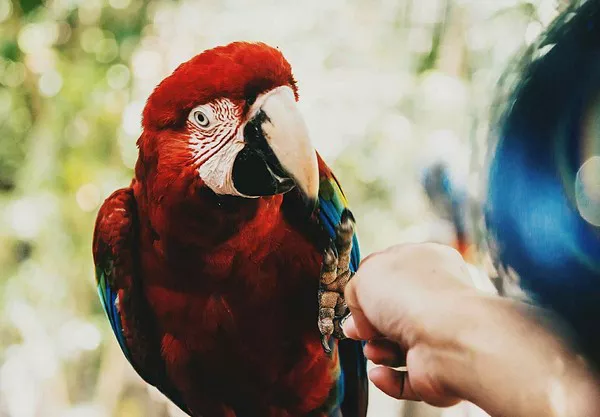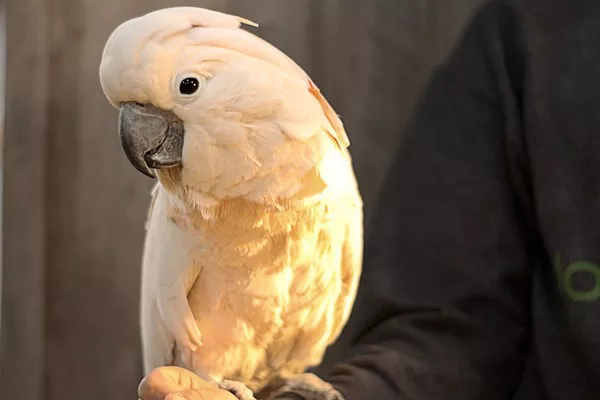Guinea pigs, also known as cavies, are adorable, small rodents that have gained popularity as pets worldwide due to their gentle nature, low maintenance, and relatively simple care needs. They come in various colors and patterns, making them especially charming to animal lovers. Despite their calm and friendly reputation, guinea pigs are known to make a variety of sounds throughout the day and night. For many pet owners, one question often arises: Why do guinea pigs make so much noise at night?
Guinea pigs are naturally social animals and have a wide range of vocalizations that they use to communicate with each other. They rely on these sounds to express emotions, warn of danger, and engage with their surroundings. Although some noise is to be expected during the day, many owners report that their guinea pigs tend to be more vocal at night. This behavior can sometimes be puzzling or even frustrating, especially if the noise interferes with the owner’s sleep. Understanding why guinea pigs make noise at night requires an exploration of their natural behavior, communication methods, and needs.
In this article, we will explore the reasons behind nocturnal guinea pig noises and discuss the factors that contribute to this behavior. We will also provide tips for managing this nighttime activity to ensure a happy and peaceful coexistence with your pet.
1. Guinea Pig Communication and Vocalizations
Before delving into why guinea pigs make noise at night, it’s essential to understand their communication methods. Guinea pigs are highly social creatures that rely on vocalizations to express themselves. They are known to make a wide variety of sounds, each with a specific meaning. The main types of guinea pig sounds include:
Wheeking: This high-pitched sound is commonly associated with guinea pigs requesting food, attention, or companionship. Wheeking is often heard when guinea pigs see their owners approaching with food or when they are feeling lonely.
Purring: Purring can signal contentment or distress. When guinea pigs purr softly while being handled, it typically means they are comfortable and happy. However, a rapid or louder purring sound can indicate annoyance or fear.
Chutting: This low, rhythmic noise usually happens when a guinea pig is exploring its environment or engaged in playful activity. It’s often a sign that they are curious or excited.
Rumbling: A deep, vibrating sound made by adult guinea pigs, particularly males, when they are trying to establish dominance or attract mates.
Squealing: This is a loud, high-pitched scream that is often heard when a guinea pig is frightened, injured, or in pain. It’s a warning sound that signals distress.
At night, guinea pigs might make several of these vocalizations, and it’s important to consider why these sounds are more pronounced after dark.
2. Natural Nocturnal Behavior
Guinea pigs are prey animals in the wild, and their behavior is heavily influenced by their evolutionary need to stay alert for potential predators. While guinea pigs are not strictly nocturnal, they are crepuscular, meaning they are most active during dawn and dusk. This natural behavior is inherited from their wild ancestors, who needed to forage and remain alert during the cooler, low-light hours of the day.
In the wild, guinea pigs are most active at night, gathering food and avoiding predators. Domesticated guinea pigs retain this behavior, which can explain why they tend to be more vocal and active during the evening. Even though your guinea pig may be housed in a safe and secure environment, the instinct to be more alert and active at night is still present.
Thus, their natural activity levels can lead to increased vocalizations in the evening. Whether it’s due to the excitement of exploring their surroundings or simply the instinct to remain vigilant, guinea pigs may express this heightened energy with more noise after dark.
3. Seeking Attention or Companionship
Guinea pigs are highly social animals, and they thrive when they have the company of other guinea pigs or humans. At night, when the household becomes quieter and darker, your guinea pig may feel more isolated or lonely. As a result, they may begin to vocalize more frequently to attract attention or seek companionship.
Wheeking is a common sound heard at night when guinea pigs want to communicate with their owners. If your guinea pig associates the evening hours with receiving food, interaction, or playtime, they may become more vocal as a way to signal their needs. The quiet atmosphere of the night can make these sounds stand out more, and guinea pigs may feel that this is an ideal time to call out.
In multi-guinea pig households, some guinea pigs may also call out to each other at night. If they are housed together, they may be trying to establish social bonds, reassure one another, or even assert dominance. Although guinea pigs are not territorial by nature, they still maintain a social hierarchy, and these vocalizations could be a sign of interactions within the group.
4. Hunger or Thirst
Guinea pigs are grazing animals, meaning they need constant access to fresh food and water. If your guinea pig’s food supply is low or their water bottle is empty, they may become more vocal as they try to communicate their hunger or thirst. At night, their instinct to find food may be heightened due to the natural rhythms of their activity.
If your guinea pig is making frequent wheeking sounds or constantly seems restless during the night, it may be worth checking their food and water supplies to ensure that they have everything they need. Guinea pigs are particularly sensitive to changes in their environment, and if they are hungry, thirsty, or unsatisfied with their habitat, they may express their frustration through loud noises.
5. Stress or Anxiety
Guinea pigs are prey animals, which means they can become easily stressed or anxious, especially in unfamiliar situations. Even the smallest change in their environment, such as a new pet in the house, loud noises, or rearranged furniture, can lead to increased vocalizations. This is especially true at night when the household may be quieter, and the guinea pig may feel more vulnerable.
A guinea pig that is stressed or anxious might make more frequent squealing or rumbling sounds. These noises could be a sign of fear, discomfort, or confusion. If your guinea pig is suddenly more vocal at night than usual, it could indicate that something in their environment is causing them stress.
To help alleviate nighttime anxiety, it is important to provide a consistent and secure environment for your guinea pig. Ensuring that their living space is comfortable, quiet, and free from sudden disturbances can help reduce their stress levels and minimize vocalizations.
6. Boredom and Lack of Stimulation
Guinea pigs are intelligent and curious creatures that require mental and physical stimulation to stay healthy and happy. If they are not provided with enough activities or enrichment during the day, they may become restless at night, leading to increased vocalizations. This behavior is often more pronounced in guinea pigs that are kept alone or in environments with limited space.
If your guinea pig is making noise at night out of boredom, it could be a sign that they need more entertainment and engagement. Providing them with toys, tunnels, chew items, and opportunities for exploration can help redirect their energy and reduce unwanted nighttime sounds. Guinea pigs enjoy interacting with their environment, and even simple changes in their habitat can help keep them engaged.
7. Health Issues
In some cases, excessive noise at night may be a sign of health problems. Guinea pigs are prone to certain medical conditions that can cause pain or discomfort, leading to increased vocalizations. For example, a guinea pig that is suffering from digestive issues, dental problems, or urinary tract infections may express their discomfort by making loud noises, particularly at night when they are most active.
If your guinea pig’s nighttime vocalizations are accompanied by other signs of illness, such as loss of appetite, lethargy, difficulty moving, or changes in their droppings, it is important to consult a veterinarian. Health-related issues should not be ignored, as guinea pigs can deteriorate quickly if not treated promptly.
8. Tips for Managing Nocturnal Guinea Pig Noise
While some level of noise is natural for guinea pigs, there are steps you can take to reduce or manage their nighttime activity and keep your household peaceful:
Provide Companionship: If your guinea pig is alone, consider adopting another guinea pig to keep them company. Guinea pigs are social animals that thrive when they have a companion. Two guinea pigs can entertain each other, reducing the likelihood of loneliness-driven vocalizations.
Create a Comfortable Environment: Ensure your guinea pig’s cage is in a quiet, low-traffic area where they won’t be easily disturbed at night. Use soft bedding and provide hiding spots to help them feel secure.
Provide Ample Food and Water: Make sure your guinea pig always has access to fresh hay, vegetables, and water. If they are well-fed and hydrated, they will be less likely to vocalize due to hunger or thirst.
Offer Enrichment: Guinea pigs need mental stimulation, so providing them with toys, chew items, and tunnels can help reduce nighttime boredom. Regular interaction during the day also helps them feel secure and content.
Establish a Routine: Guinea pigs benefit from a consistent routine, including feeding and playtime at regular intervals. A predictable schedule can help them feel more secure and reduce anxiety.
Monitor for Health Issues: If your guinea pig’s nighttime vocalizations seem unusual or are accompanied by other symptoms, schedule a visit to the vet to rule out any health problems.
Conclusion
Guinea pigs are social, curious creatures that naturally express themselves through vocalizations. Nocturnal sounds are a part of their instinctive behavior and are influenced by factors such as hunger, loneliness, stress, and boredom. While some level of nighttime noise is normal, understanding the causes behind these sounds can help you address your guinea pig’s needs and ensure a comfortable living environment for them.
By paying attention to their natural behaviors and providing proper care, enrichment, and companionship, you can help reduce unnecessary noise and enjoy a peaceful relationship with your guinea pig—day or night.
Related Topics:
























